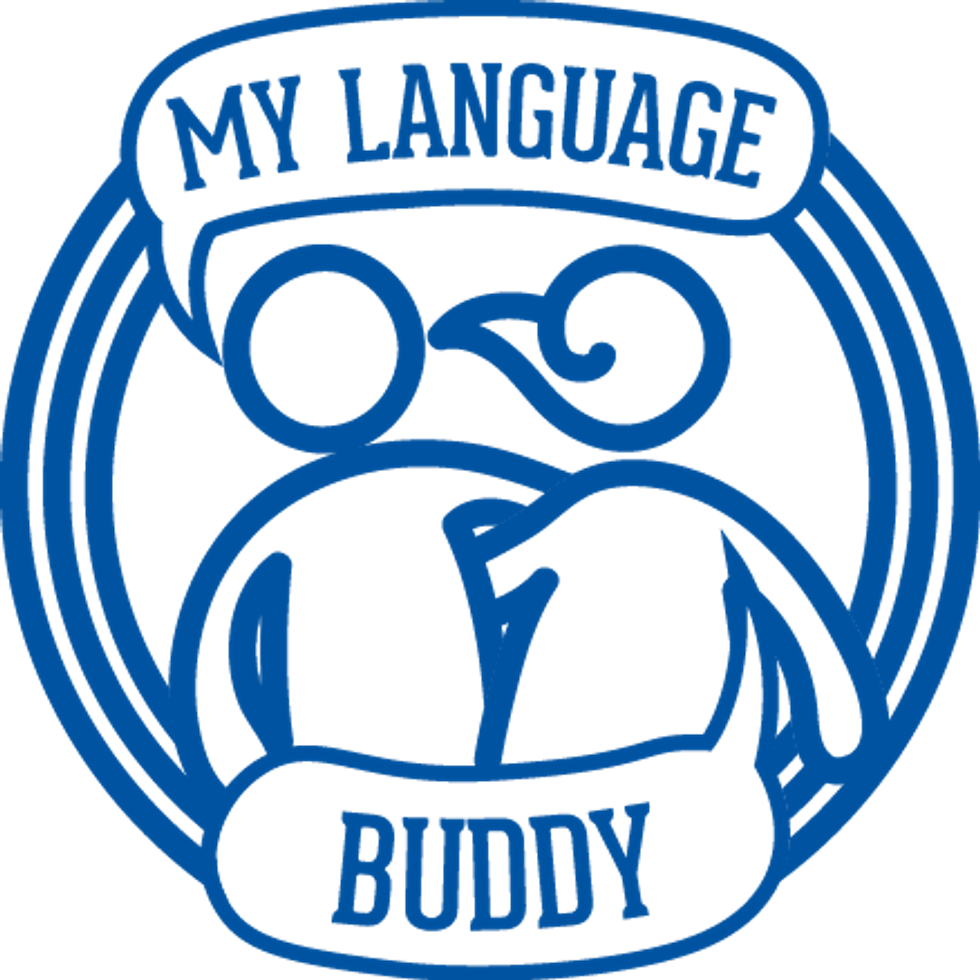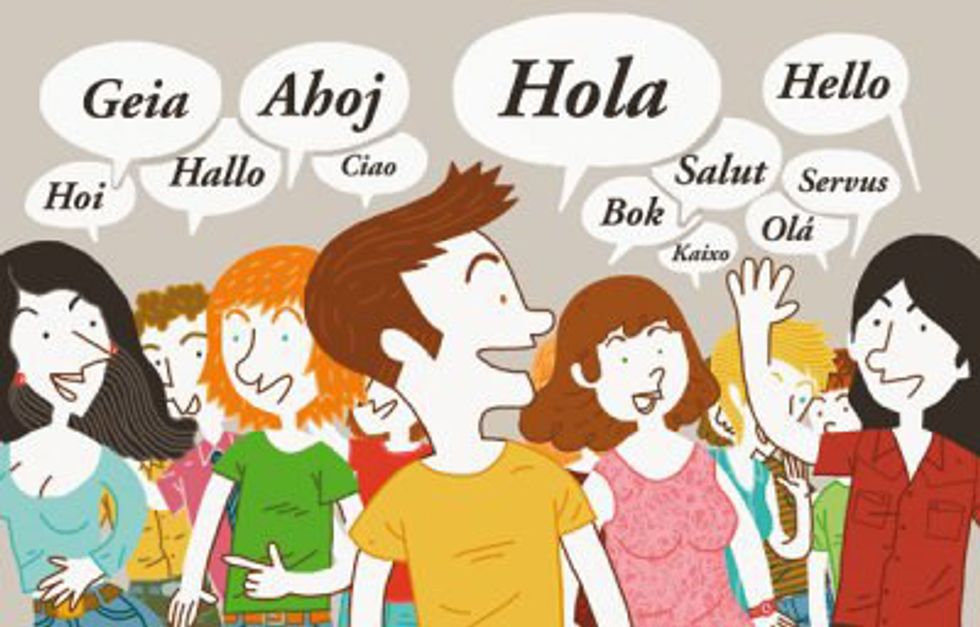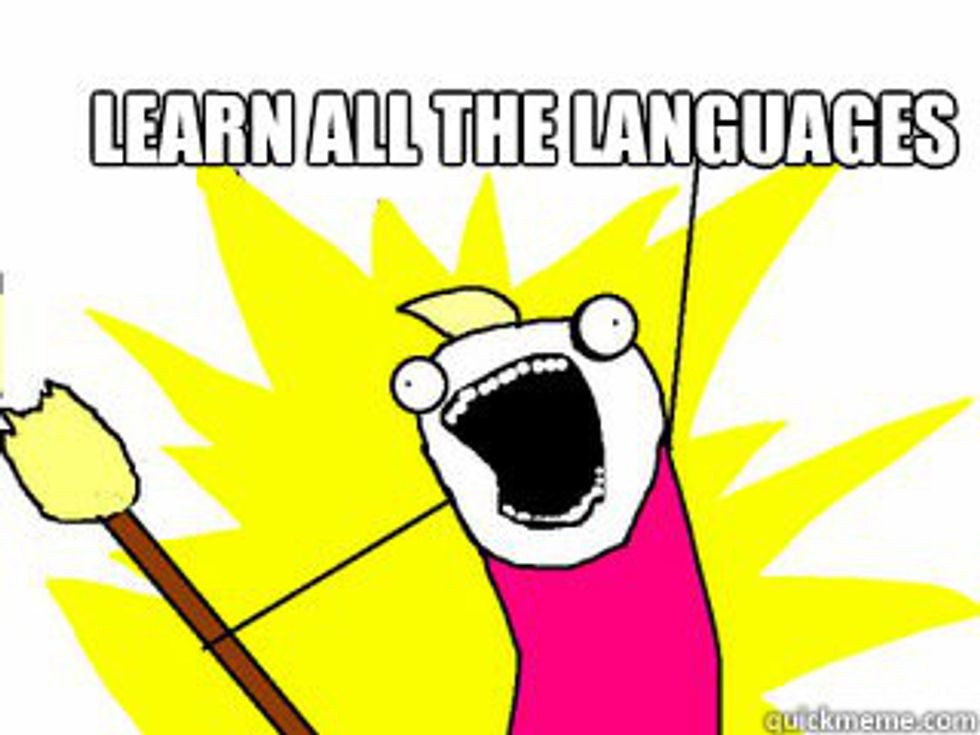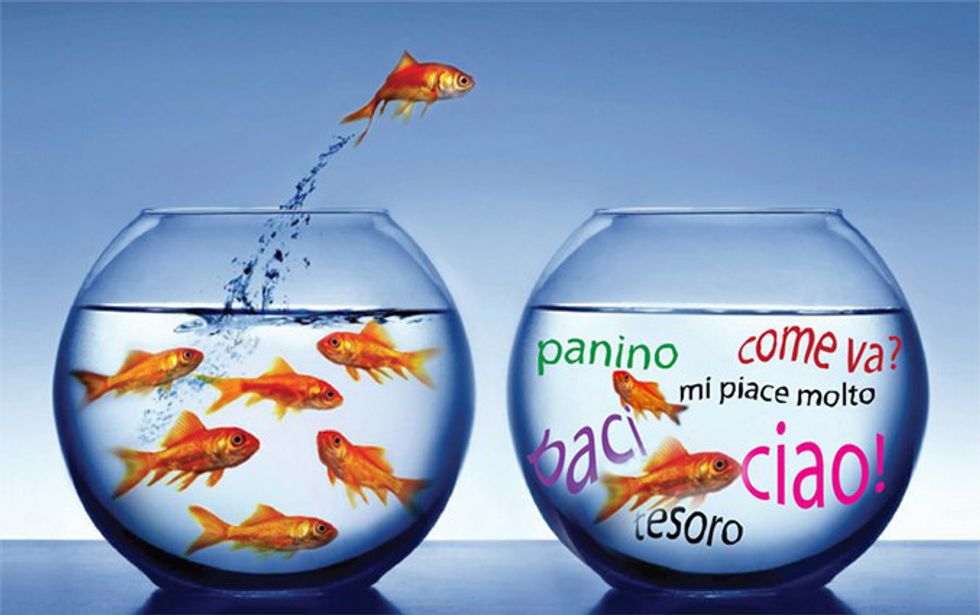1. Hating on Google Translate.
Case closed.
Have Your Voice Heard: Become an Odyssey Creator
2. Changing character language by language.
Different cultures have different ways of expressing themselves, and upon learning their language, a polyglot will begin to act as one of them. When in Rome, do as the Romans do. For polyglots, this is almost subconscious.
3. Freezing up and not being able to speak sometimes.
For people who speak multiple languages, it's almost inevitable. Think of word balls trying to make their way out of their mouths and into the world. Sometimes, two word balls try to come out at the same time, they get stuck, they choke, and they freeze up for a solid 30 seconds.
4. Slipping from one language into another.
A polyglot might start a sentence in one language, aber they mischen words from ein anderer tongue, und Sie beenden der Satz in die zweite Sprache.
5. Responding in a language other than what was asked.
This one happens a lot. A polyglot might be thinking in one language, but speaking in another. Example: A professor wishes a student well in French, and the student responds in German. The professor gives the student a puzzled look for a moment, and the student realizes what happened and feels embarrassed.
6. Eavesdropping on people who are speaking a target language.
It can't be helped. Polyglots will practice their listening wherever they can, and if they hear their target language spoken somewhere, they will subconsciously hover over and try to understand as much as possible.

7. Speaking to people in a different language to prevent eavesdropping.
Sometimes, it's flipped. If polyglots have to discuss something discreetly, but secretly, they will often switch to a language in which they are both comfortable and confident that no one in the surroundings can understand.
8. Laughing at words that sound funny in another language.
Some words sound hilarious in other languages. For example, "jaajii" (ジャージー), is Japanese for "jersey." In Mandarin Chinese, the same sound, albeit with vocal tones Zhá jī (written 炸鸡 ) means fried chicken. But in Korean, that same word (자지) is slang for "penis". Speakers of these languages laugh at this sometimes. The sound is almost exactly the same, but they mean totally different things. This is one reason why polyglots are seldom bored. They crack interlinguistic jokes often.
9. Crying when one language gets stronger, another weakens.
Yeah, learning a language is great and it brings a lot of joy, but it's a horrible feeling when a language is being forgotten. Spelling mistakes, forgetting words, messing up grammar, and occasionally total deterioration of a known language (sadly, the mother tongue is the most vulnerable). Polyglots try to reach high levels in as many languages as humanly possible, but they work hard to maintain what they have already learned.
10. Raging when translations aren't exact.
Translations are never perfect. No one knows that better than a person fluent in both of the said languages, and no one hates it more. It's sad to see the deeper meaning being lost in translation. Subtitles, for example, are a pain due to much of the meaning being lost.
11. Your taste in media is very varied.
Wake up to some J-Pop. Shower to German Radio. Eat breakfast and watch a K-Drama. Blast Bollywood music on the way to work/school. Watch a La Liga match when you get back home. Watch Al Jazeera World News. These are all common methods. But most importantly, there is always time set aside to study the language at hand. Even for stressed medical and engineering students.
12. Getting asked to "say ____ in ____", over and over again.
At first, a polyglot is happy to help, but over a long period of time, it starts to get irritating.
13. Getting asked to "say ____ in ____", and saying something to embarrass them on purpose.
Some polyglots have a twisted sense of humour, so they'll say something totally different from what was asked. When asked "How do you say 'Thank you very much?' in Chinese", they might respond, "你的屁股很大 。" and wait patiently until their friend make a fool of themselves.
14. Becoming a language buddy.
In teaching a language, one's own linguistic skills improve. Having someone to practise with is always a major plus.
15. Finding a language buddy.
The best way to learn a language is through human interaction. Native speakers are sometimes in short supply, depending on the targeted language.
16. Beaming when meeting another polyglot.
A polyglot wants to learn as many languages as possible, and when two people share a goal, they'll most likely click on that note.
17. Constantly wanting to "trade languages"
Whether they have a common language, or not. The concept of "One hand washes the other" is strong in the polyglot community, chiefly in terms of teaching one another. If a polyglot is struggling to trade, they can often turn to Speaky. If person A speaks language X and wants to learn language Y, and person B speaks language Y and wants to learn language A, they match. It's a less nasty and more intellectual equivalent to Tinder.
18. Finding a deeper connection in people.
Nelson Mandela once said, "Talk to a man in a language he knows, that goes to his head. Talk to a man in his language, that goes to his heart." Polyglots know this firsthand, and the person spoken to will subconsciously be a little bit more trusting.
19. Wanting to learn all the languages.
It's an addiction. Once a polyglot, always a polyglot. When asked, "How many languages do you want to learn?", the correct response is, "As many as I can until I die."
20. Trying to convince people it really isn't anything that special.
This is a common misconception. Polyglots, even hyperpolyglots, are not that exceptionally intelligent or free in their time. It's nothing more than a passion for languages, finding the process fun, and being dedicated. As intimidating and daunting as it is, it isn't anything out of the ordinary.
21. Having a global mindset.
Learning a language opens up doors around the world. A polyglot will tend to become a very global person, especially if their languages are from different areas of the world. As a result, they'll show disdain for xenophobic views, become more enterprising.
22. Letting people guess where they're from.
Step 1: Speak one language. Step 2: Speak another totally unrelated language. Optional Step 3: Repeat Step 2 as many times as they'd like. Step 4: Laugh as another person tries to guess where they're from.
23. Never thinking they know enough.
Polyglots know that they speak multiple languages, but they reach a point at which it becomes normal to them. Plus, a polyglot will never consider themselves special, because many compare themselves with the next person up, speaking X number of languages more, or speaking the languages they know to a more fluent level.
24. Freaking native speakers out.
It's one thing to surprise friends, but surprising a native speaker is a whole new level of satisfaction, especially when the polyglot looks nothing like a "native speaker", like an Indian man speaking Russian, or an African woman speaking Japanese.
25. Looking for immersion.
There's no better way to learn languages than to be totally immersed in them. When a has a mind to learn a language, they will seek out media in that language, make friends who speak that language, maybe even be going as far as finding a significant other who is a native speaker. Finding a pen pal is very old fashioned and yet popular method (best done through a school or university).
26. Building language bridges.
Often people who speak 3 or more languages use one language as a "middle man", which makes the central language disproportionately strong. As a result, polyglots attempt to form a triangle of the three languages. If one person speaks Hindi, English, and Spanish, with English at the center. The will practice going from Hindi to Spanish and Spanish to Hindi to balance the strength of language. The same method will be adopted as this "language network" grows.
27. Pronunciation is Paramount
A polyglot cares deeply about vocal pronunciation and intonation, depending on the language. The smallest change can totally change the word. It's difficult to make a polyglot cringe, but gross butchering of a word will likely set them off.
28. Setting devices, apps, and websites in multiple languages.
Facebook in Hindi, Instagram in Mandarin, iPhone in Japanese, Galaxy in Korean, PC in Russian. This seemingly mad method of studying can be extraordinarily effective as long as a polyglot practices active reading at all times. Active reading is reading the said material carefully and analyzing meanings and significances of words, sentences, and passages.

29. Having multiple keyboards to type with.
If not a physical keyboard, a virtual keyboard for sure. Though it can sometimes to find the desired keyboard.

30. Using loads of apps and websites to learn.
Duolingo, Memrise, Anki, Omniglot, and more. All of these are integral to a polyglot's success.
31. Jumbling accent, grammar, and vocabulary.
It can get sometimes confusing. It's better than freezing up definitely. To understand it is not impossible. It is difficult only.
32. Getting mad at autocorrect for not detecting a language.
Autocorrect never assumes a change of language, and it can be a pain changing the system language so often.
33. Hating on Rosetta Stone
It's the most overpriced and least effective learning tool on the market, second only to a degree from Trump University. There are hundreds of free, and more effective, platforms. RS is basically the Leaning Tower of Pisa in the language learning community
34. Finding a lot of little perks with the languages
One story includes an Argentine-American man's visit to Budapest. He stays at an inn with a pub for two weeks. He becomes good friends with the innkeeper. The man spoke fluent Hungarian, and at first, the innkeeper
Do you want to become a polyglot?
It's not as difficult as it seems. It's not the smartest or the most skilled, but the most passionate and hardworking that become polyglots. Just invest time in learning the language of your choice. Seek out people who are fluent in your target language. And most importantly, do not give up.

















































